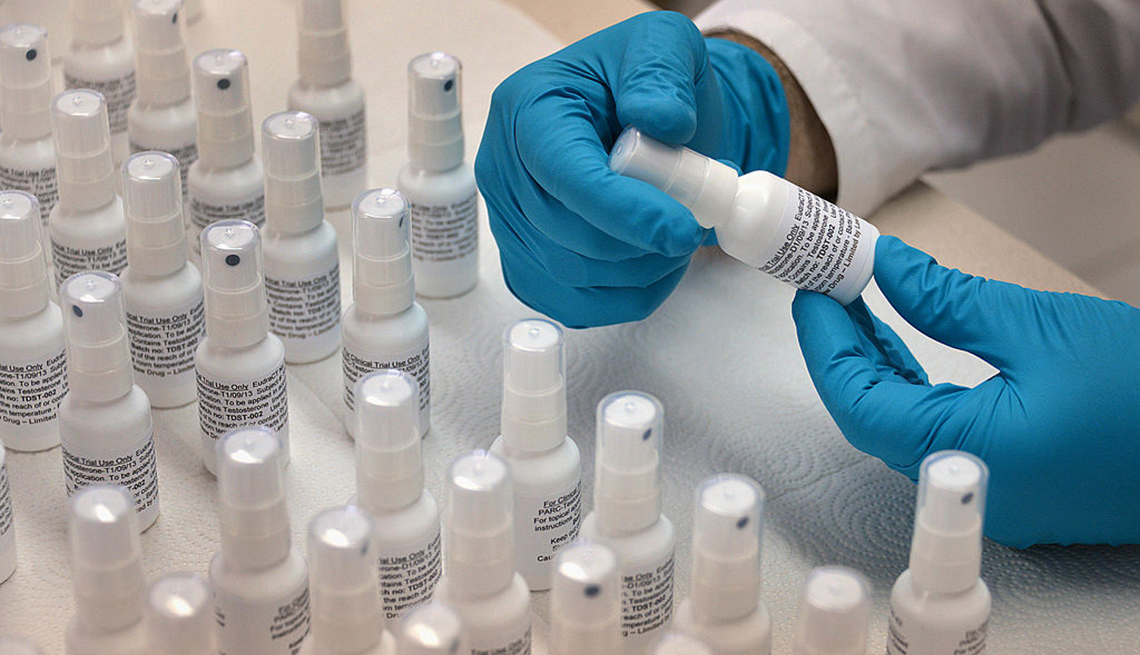AARP Hearing Center
Despite all the hype over the benefits of testosterone therapy, previous research has shown testosterone to only mildly improve sexual performance and mood. And now new results derived from the same research have found something more: that testosterone treatment doesn’t actually improve older men’s memory or mental function despite the anti-aging claims of popular supplements.
While testosterone use for one year appeared to strengthen bones and reduce anemia, it also showed signs of worsening artery disease, and questions remain about other potential risks. Researchers say more studies are needed to determine long-term effects.
“I don’t think anybody would interpret these results as saying, ‘Wow, this is a fountain of youth, this is a magical anti-aging potion’,” said study coauthor Susan Ellenberg, a University of Pennsylvania researcher.
The results are from a project mostly funded by the National Institute on Aging involving nearly 800 men 65 and older with low testosterone levels. The goal was to see if rubbing testosterone gel on the skin daily for a year could treat problems linked with low levels of the male hormone, which declines with age. Half the men in each group used the real thing and half used fake gel.
The researchers concluded that testosterone had no effect on memory or mental function. And among almost 140 men who underwent heart artery imaging tests to see if the hormone slowed progression of plaque, those who used testosterone had more plaque buildup and narrower arteries after a year than the fake gel group.
Results published a year ago from the same research linked testosterone with mostly minor improvements in sexual performance, walking strength and mood.
The key new findings include:
- Testosterone had no effect on memory or mental function, based on tests given before, halfway and at the end of treatment to nearly 500 men with age-related memory decline.
- Among almost 140 men who underwent heart artery imaging tests to see if the hormone slowed progression of plaque, those who used testosterone had more plaque buildup and narrower arteries after a year than the fake gel group.
- Among about 200 men given bone-imaging tests before and at the end of treatment, those on testosterone showed increases in bone density and strength, especially in the spine, while minimal changes were found in the group that used fake gel.
- Among 126 men with anemia – a fatigue-linked condition involving inadequate red blood cells – those on testosterone showed substantial improvement.
Despite the above, researchers said that more studies are needed. “The overall health benefits, however, remain to be determined,” they said.



































































